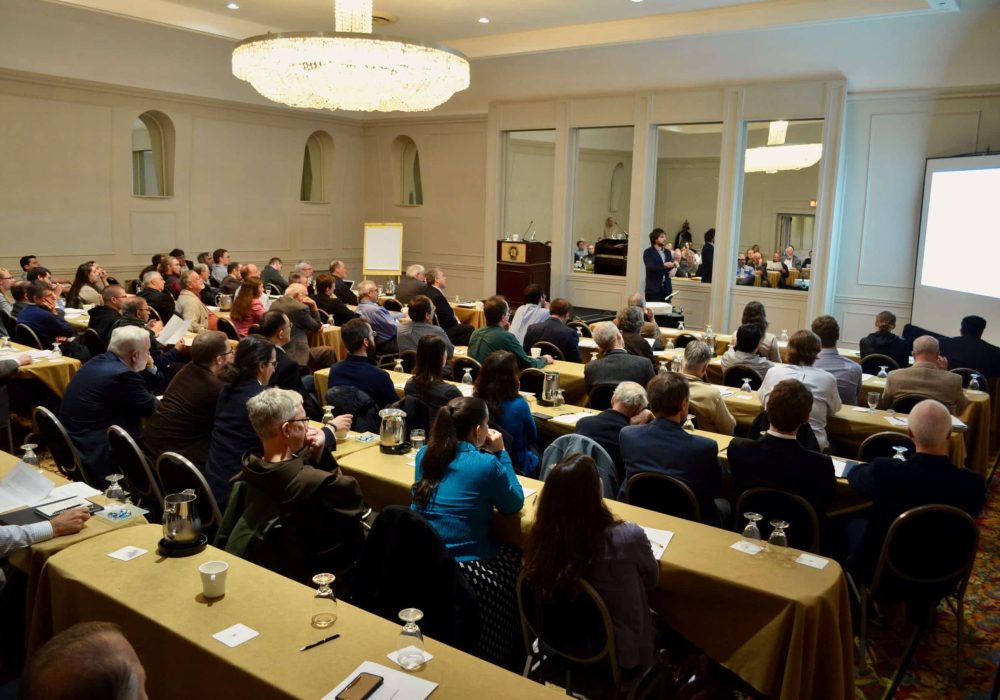WATCH VIDEOS HERE
The first annual conference of the Society of Catholic Scientists cosponsored by the Lumen Christi Institute
The conference brought together researchers on all aspects of origins, from cosmos to consciousness. Specific topics included current cosmological ideas on the beginning and fate of the universe, fine-tuning and multiverse ideas, habitable planets and astrobiology, the origin of life, the evolution of species, and the origin of intelligence and consciousness.
CONFERENCE PRESENTATIONS
“The Origin and Evolution of Universes” – Prof. John D. Barrow (Univ. of Cambridge)
“The Origin and Evolution of Habitable Worlds” – Prof. Karin I. Öberg (Harvard Univ.)
“Medieval Ideas of the Multiverse” – Prof. J. Christopher Clemens (University of North Carolina, Chapel Hill)
“The Origin of Evolution: The Interplay of Order and Contingency” – Prof. Daniel Kuebler (Franciscan University of Steubenville)
“Process Information: A Novel Communication Theory with Applications to Evolutionary Biology” – Dr. Erick Chastain (Rutgers University)
“Why Only Us: the origin of human language” – Prof. Robert Berwick (MIT)
“Science in the Light of the Christian View of the Human Person” – Fr. Joachim Ostermann, O.F.M., Ph.D. (Franciscan Friars of Canada)
“The Catholic Scientist in the Secular World: What is the meaning of our vocation and how does it distinguish us?” – Dr. Marisa March (University of Pennsylvania)
St. Albert Award Lecture: “To Find God in All Things: Grandeur in an Evolutionary View of Life” – Prof. Kenneth R. Miller (Brown University)
Banquet Address – Br. Guy Consolmagno (Director of the Vatican Observatory)
“Georges Lemaitre’s Contributions to Cosmology” – Prof. Robert Scherrer (Vanderbilt University)
“Are Probabilities Essential to Inferring Design?” – Prof. Robert C. Koons (University of Texas at Austin)
CONFERENCE MEDIA COVERAGE
Faith And Science Come Together At Conference For Society Of Catholic Scientists, Forbes
Catholic Scientists Converge in Chicago to Ask Big Questions, Catholic News Agency
Catholic Scientists Discuss Faith’s Role in Work, Our Sunday Visitor

